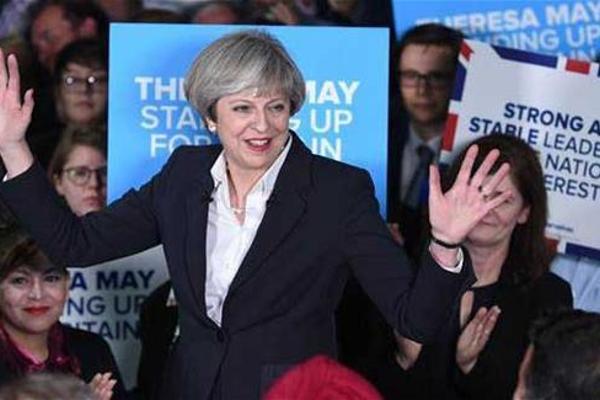May’s record on security in focus on eve of polls
LONDON – Reuters


After police named two of the attackers and revealed that one was previously known to security agencies, May’s Conservative Party faced further questions about her record overseeing cuts to police numbers.
The latest opinion poll, by Survation for ITV, showed the Conservatives’ lead narrowing to just one point from six points in the same poll a week earlier.
Police disclosed late on June 5 that 27-year-old Khuram Butt, a British citizen born in Pakistan, was known to police and domestic spy agency MI5 but with resources scarce had not been deemed enough of a threat to warrant close monitoring.
Butt had appeared in a documentary called “The Jihadis Next Door,” broadcast last year by Britain’s Channel 4, as part of a group of men who unfurled an Islamic State of Iraq and the Levant (ISIL) flag in a park.
In Britain’s third terror attack in as many months, Butt and two others rammed a van into pedestrians on London Bridge on June 3 evening before running into the bustling Borough Market area where they slit throats and stabbed people.
A Canadian, a French national and a Briton were among the dead, while other French people, a Spaniard, Australians and a New Zealander were among the 48 who were injured in what Prime Minister Theresa May called “an attack on the free world.”
As interior minister from 2010 to 2016, May oversaw a drop of 20,000 in the number of police officers in England and Wales, which her main opponent, Labour leader Jeremy Corbyn, said should never have happened and warranted her resignation.
May hit back that Corbyn himself was weak on the issue of terrorism. He has been criticized for voting against counter-terrorism legislation and expressing reservations about police responding to attacks with “shoot-to-kill” tactics.
May did not answer repeated questions from reporters on June 5 on the police cuts she oversaw but said counter-terrorism budgets had been protected and police had the powers they needed.
The Conservatives’ lead over Labour has narrowed markedly from 20 points or more when May called the election in April to a range between one and 12 points now, although they are still widely expected to win a majority.
The narrowing in the polls started before the Manchester and London attacks and appeared to be largely linked to an unpopular policy announcement regarding care for the elderly. The trend has continued since the two attacks, most polls suggest.
